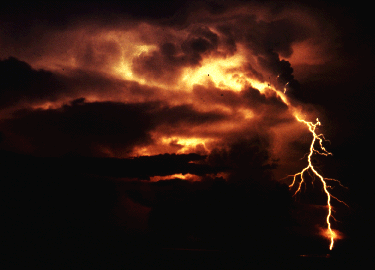The Terror of the Lord
by A. W. Tozer
from his book “The Root of the Righteous”
A truth fully taught in the Scriptures and verified in personal experience by countless numbers of holy men and woman through the centuries might be condensed thus into a religious axiom: No one can know the true grace of God who has not first known the fear of God.
The first announcement of God’s redemptive intention toward mankind was made to a man and a woman hiding in mortal fear from the presence of the Lord. The Law of God was given to a man trembling in terror amid fire and smoke, and quaking at the voice of thunder and the sound of the divine trumpet. When Zacharias’ tongue was loosened by the mysterious operation of God, “fear came on all that dwealt round about” (Luke 1: 65). Even the famous annunciation, “on earth peace, good will toward men” (Luke 2: 14), was given to shepherds who were “sore afraid” (2: 9) by reason of the sudden overwhelming presence of the heavenly host (see Luke 2: 9-14).
We have but to read the Scriptures with our eyes open and we can see this truth running like a strong cable from Genesis to Revelation. The presence of the divine always brought fear to the hearts of sinful men. Always there was about any manifestation of God something that dismayed the onlookers, that daunted and overawed them, that struck them with a terror more than natural. This terror had no relation to mere fear of bodily harm. It was a dread consternation experienced far in toward the center and core of the nature, much father in than that fear experienced as a normal result of the instinct for physical self-preservation.
I do not believe that any lasting good can come from religious activities that do not root in this quality and creature-fear. The animal in us is very strong and altogether self-confident. Until it has been defeated God will not show Himself to the eyes of our faith. Until we have been gripped by that nameless terror which results when an unholy creature is suddenly confronted by that One who is the holiest of all, we are not likely to be much affected by the doctrine of love and grace as it is declared by the New Testament evangel. The love of God affects a carnal heart not at all; or if at all, then adversely, for the knowledge that God loves us may simply confirm us in our self-righteousness.
The effort of liberal and borderline modernists to woo men to God by presenting the soft side of religion is an unqualified evil because it ignores the very reason for our alienation from God in the first place. Until a man or woman has gotten into trouble with their heart they are not likely to get out of trouble with God. Cain and Abel are two solemn examples of this truth. Cain brought a present to One whom he assumed to be pleased with him. Abel brought a sacrifice to One whom he knew could not accept him as he was. His trembling heart told him to find a place to hide. Cain’s heart did not tremble. Cain was well satisfied with himself, so he sought no hiding place. The fear of God would have served Cain well in that critical moment, for it would have changed the whole character of his offering and altered the entire course of his life for the better.
As indispensable as is the terror of the Lord, we must always keep in mind that it cannot be induced by threats made in the name of the Lord. Hell and judgment are realities, and they must be preached in their Biblical context as fully as the Bible teaches them, no more and no less; but they cannot induce that mysterious thing we call the fear of the Lord. Such fear is a supernatural ting, having no relation to threats of punishment. It has about it a mysterious quality, often without much intellectual content; it is a feeling rather than an idea; it is the deep reaction of a fallen creature in the presence of the holy Being the stunned heart knows is God. The Holy spirit alone can induce this emotion in the human beast. All effort on our part to superinduce it is wasted, or worse.
Because the fear of God is a supernatural thing it can never be raised by repeated warnings about war or communism or depressions. The current trick of frightening people into accepting Christ by threatening them with the atom bombs and guided missiles is not Scriptural, neither is it effective. By shooting off firecrackers in the face of a flock of goats you could conceivably succeed in herding them into a sheepfold; but all the natural fear in the world cannot make a sheep out of a goat. And neither can fear of a Russian invasion turn impenitent men into lovers of God and righteousness. It just does not work that way.
Whence then does true fear of God arise? From the knowledge of our own sinfulness and a sense of the presence of God. Isaiah had an acute experience both of his personal uncleanness and of the awesome presence of Jehovah: the two were more than he could stand. On his face he cried out a confession of his own sinfulness, made all the more intolerable because his eyes had seen the King, even the Lord of Hosts.
A congregation will feel this mysterious terror of God when the minister and the leaders of the church are filled with the Spirit. When Moses came down from the mount with his face shining, the children of Israel were afraid with a fear born out of the supernatural sight. Moses did not need to threaten them. He had only to appear before them with that light on his face.







Leave a Reply, please --- thank you.